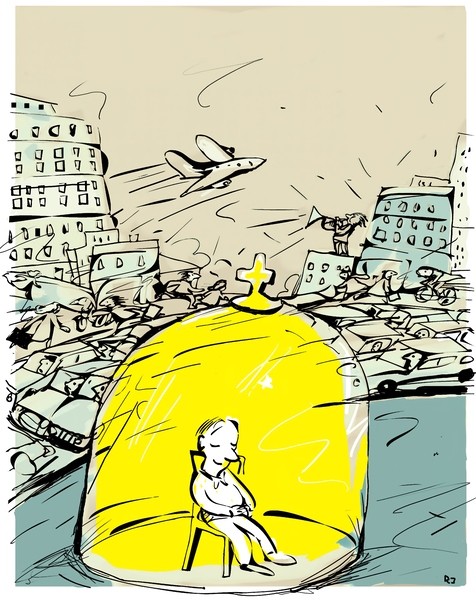|
"Preachers one and all" | By Rev. Jack Miller We are called to carry the Good News not only from a pulpit, but in the small, everyday moments of life. By sharing our encounters and journeys with Jesus, we become evangelists in the simplest of ways, and others may find their way to encounter Christ as well. As we reflect on Jesus’ encounter with the Samaritan woman at the well, may we see how personal testimony, offered with humility, becomes a doorway for others to meet the Savior. As today’s story unfolds, Jesus arrives at the well tired, thirsty, and in a foreign land. He finds himself alone, an alien in a town filled with people who have a long history of disdain for his kind. Most in this situation would lie low and not want to draw attention to themselves, but Jesus did not. He immediately breaks a social taboo by speaking to a woman in public, something a good Jewish boy would never do, not even if the woman were his sister, his mother, or even his wife. The woman is surprised, even startled, but also intrigued because Jesus refuses to make an issue of her gender or nationality. He begins their dialogue by expressing a simple human need, thirst, and then engages her in conversation and teaching, something Jesus was very good at. His special gift was to invite people to interact with him while he passed on wisdom and knowledge. In the end, this encounter with Jesus liberates the woman from her own prejudices and misguided beliefs. Where we worship is secondary, Jesus tells her. How we worship is more important. Jesus uses the water as a metaphor to instruct this woman. He speaks to her about living water, which gives eternal life and divine grace; water that ends our spiritual thirst. The woman craves this type of water because she wants to have eternal life. In the end, her spirit is enlightened. She now realizes what it means to take freely of the water of life, which is the spiritual refreshment that comes into the soul after a personal encounter with Jesus. She believes he is truly the Messiah, the Anointed One. As the story closes, she goes back to tell her family, friends, and neighbors how she met Jesus, how he revealed his knowledge of her sins, and his offer of life-giving water. She went on to lead many in her village to believe in Jesus through her zeal and love for God, as evidenced by her witness and testimony. She had no training, no degrees hanging on the wall, but she became an evangelist, a preacher proclaiming the Good News that is Jesus Christ. But what does this wonderful story tell us about our own lives and our own journey of faith? What can we learn from the Samaritan woman and her high-noon meeting with Jesus at the well? The answer is in the example she sets for us. Because of her personal encounter with Jesus, her life was transformed; changed forever. She shared her experience with others, and through her testimony, they were led to their own personal encounter with Jesus as well. In sharing that belief in the smallest of ways, we participate in a divine invitation to others to encounter Christ. We are, in truth, Preachers one and all, because every life touched by grace points toward the Giver of grace. Let your story be a light in the ordinary; your questions a bridge toward truth; your welcome a doorway into a community where the weary find rest in Jesus. May we imitate the Samaritan woman not by grand rhetoric but by honest testimony—still, clear, and full of Christ. Now may the Lord bless you and keep you; may the Lord make his face shine upon you and be gracious to you; may the Lord turn his face toward you and give you peace. Go in the power of the Spirit to share your encounters with others, that they too may say, “Come, see a man who told me everything I ever did.” Amen. |
||
Haven of Rest
Formerly Saint Clare Pastoral Center
Formerly Saint Clare Pastoral Center
|
|
Copyright © 2026 Safe Haven Spiritual Center. All Rights Reserved.
